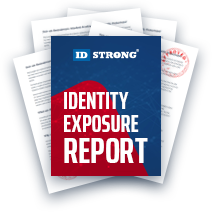Typosquatting vs Cybersquatting: What's the Difference Between Them?
Table of Contents
- By Rita
- Published: Apr 22, 2022
- Last Updated: Aug 16, 2023

There are more and more cybersecurity risks arising every day. Companies and institutions need to be aware of them and develop policies to prevent cybercrime. Some of the newest forms of cybercrime are typosquatting and cybersquatting.
What is Typosquatting?
Typosquatting is a cybercrime that attempts to trick users into visiting dangerous websites. Criminals do this by creating a URL that is a common misspelling of a more famous website. There are several names or typosquatting examples, including domain mimicry, fake URLs, or URL hijacking.
Typosquatting is classified as a social engineering attack. Unlike other cyberattacks (such as DDOS attacks), social engineering attacks do not focus on breaking through hardware or software. Instead, social engineering attacks target the human element of networks.
Cybercriminals use social engineering in a variety of ways, but there are a few principles that reinforce all forms of attacks:
- First, cybercriminals build trust with the user. Trust can be accomplished in several ways. The most common way criminals build trust is through impersonation: a criminal pretends to be a superior or trusted colleague.
- Following this, the criminal presents a problem. Under the guise of someone the target trusts, the criminal presents a problem that only the target can solve by giving out sensitive information.
For example, if the criminal is pretending to be a manager, they may claim that they need the details of the target to remotely access a desktop for time-sensitive work.
- If convinced by the criminal, the target will then take further action. In some cases, the target will send the criminal sensitive information such as passwords. In others, the criminal will request that the target open an email containing malware.
Risks of Typosquatting
Typosquatting presents several unique risks compared to other forms of social engineering attacks.
- Existing Trust: In the case of typosquatting, the user already trusts the website as they falsely believe it is legitimate. Unless they notice something wrong (such as an incorrect URL), they may freely give the website their information during login.
This makes typosquatting more dangerous than other types of social engineering because targets may not think anything is wrong with the site they are using.
- Reputational Damage: Typosquatting frequently involves the names of large tech companies. Organizations may face reputational damage if consumers believe they, rather than cybercriminals, are scamming them.
Cybersquatting Definition: What is Cybersquatting?
Cybersquatting is the act of registering domain names, especially of well-known companies, as internet domains and selling them for a profit.
Some cybersquatting examples include registering potential misspellings (similar to typosquatting). Another example of cybersquatting is registering different top-level domains that you do not intend to use.
For example, registering google.org or google.lu and expecting the company to buy the domains from you when they need them. Companies such as Panasonic and Avon have been victims of just this kind of crime.
How does cybersquatting happen? In the early days of the internet, there were not many companies could do to deal with cybersquatting. The law had not yet caught up to this new technology.
If a company needed to expand into a new country with a different top-level domain owned by a criminal, the quickest solution would be to buy the domain from the criminal.
Today, governments have created laws to deal with cybersquatting. Even so, cybersquatting is still a risk when expanding into countries with less-developed internet infrastructure.
How To Protect Yourself From Both

With all these risks in mind, how can companies protect themselves from both Typosquatting and Cybersquatting?
There are a few ways to deal with these threats, though you must treat each of them differently.
Some of the best ways to protect yourself include:
- Education: Since typosquatting attempts to exploit weaknesses in a company's employees, not technology, one of the first things a company should do is educate its staff on the dangers of typosquatting.
Reminding employees to double-check that the URL is correct and that the site has an up-to-date SSL is one of the most cost-effective ways to reduce the threat of typosquatting. - Filtering: Typosquatting tries to use websites that sound similar to other, more reputable sites. However, they cannot replicate the site's name exactly. Typosquatting is, therefore, vulnerable to good filters.
By installing filters on company routers and allowing access only to what is necessary, companies can reduce the risk of employees ever encountering fraudulent websites. - New Technology: New technologies are created every day to deal with typosquatting. Anti-spoofing software and security protocols like DKIM and SP provide additional protection to company infrastructure.
- Legal Process: Cybersquatting can now be dealt with legally. Following the passage of the Anti-cybersquatting Consumer Protection Act (ACPA), companies can file a domain name dispute. Companies that file these disputes may be able to take control of a domain they believe has been illegitimately registered.



















































































































